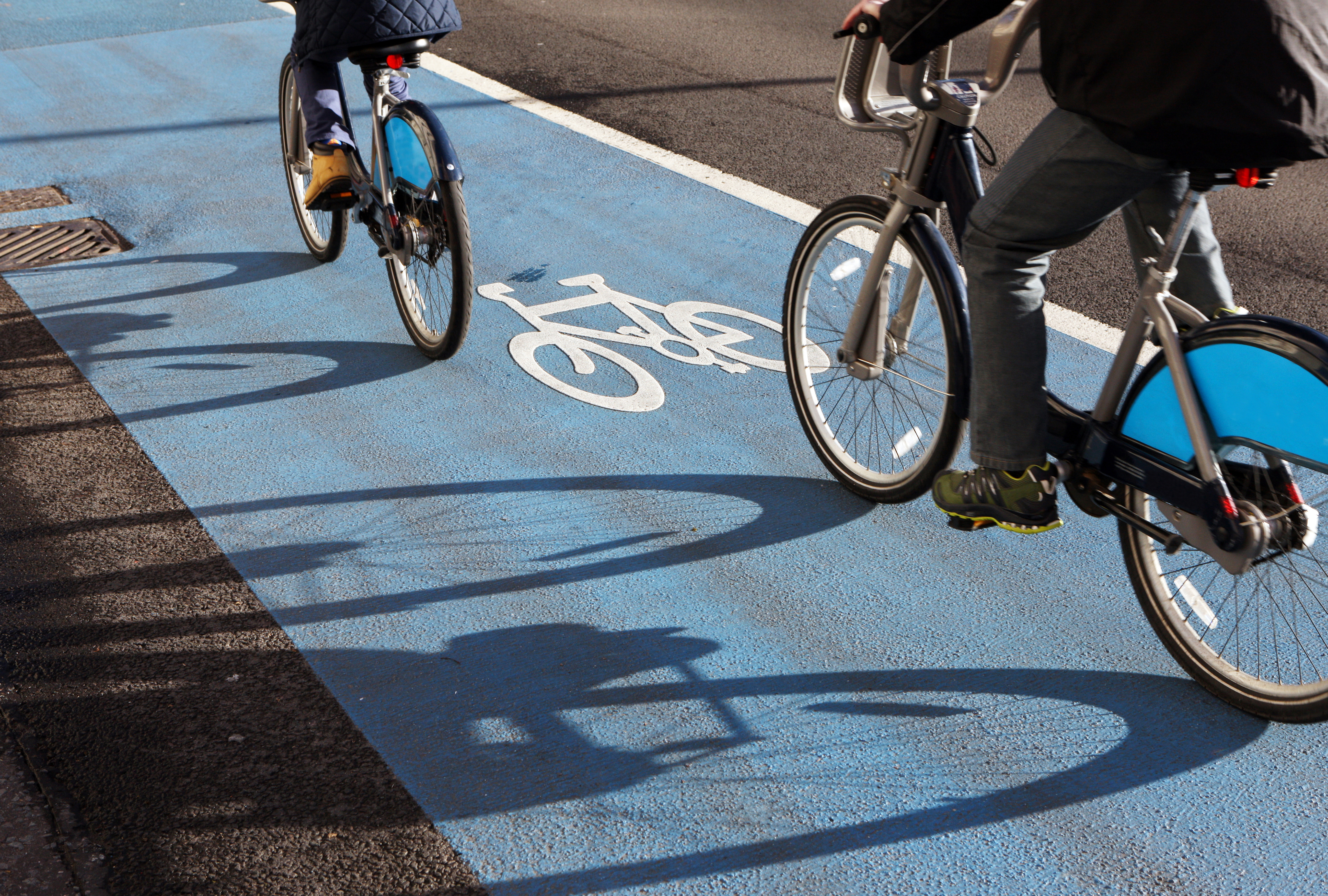
Today, The Telegraph published a story claiming that cyclists are turning roads into "death traps" by riding as fast as 52 miles per hour (mph) in 20mph zones. If true, this would be reckless. However, a simple check of the Strava segment in question shows the rider reportedly achieving this feat, over a 0.3% incline, on just 101 watts. Cyclists, everywhere, can recognise this could be a GPS glitch, not a superhuman display.
Cycling has dominated headlines in the UK in recent days - for all the wrong reasons - following an amendment to the Criminal Justice Bill, which could see cyclists charged with 'dangerous cycling' sentenced with up to 14 years in prison.
The proposal - backed by the government on Wednesday - comes soon after a high profile-case in which a cyclist escaped prosecution following a fatal collision in London's Regents Park in 2022. Since the rider in question was cycling in excess of the 20mph speed limit, the case has also promoted discussion around the non-application of speed limits for cyclist.
I have no desire to wrangle over the premise of fair punishment for reckless behaviour that results in serious injury or, in the worst instance, fatality. Any unnecessary death is tragic and the experience of an unjust justice system heartbreaking for all involved.
The 'but' is that the road system is horrendously unjust, in almost every instance. There are "death traps" on the road, but cyclists are statistically far more likely to fall victim of them than they are to be the cause.
The moment mainstream newspapers publish headlines around "dangerous cycling", bike riders can expect heightened aggression on the roads, which can range from the unpleasant - windscreen wiper fluid and swearing, horrendously close passes even when pedalling with a toddler on the back (an experience which ended any chance of my taking one car off the road for our short nursery commute) - to the deadly.
Punishing the 1-2%
There are, unfortunately, endless examples of cyclists killed by drivers who have gone on to escape punishment. In January this year, a delivery driver who hit and killed cyclist Robert Cowie was found not guilty of causing death by careless driving, his defence being that he didn’t see the rider "because of the sun". In March, a lorry driver was given 100 hours community service, after pleading guilty to death by dangerous driving following a fatal collision with 22 year old Emma Burke Newman.
To an extent, quibbling over the sentences available and the sentences genuinely handed down serves to little gain. Because each year, around 30,000 people die or are seriously injured on British roads, and just three are caused by cyclists. Of pedestrians killed 98% are killed by drivers, and 2% by cyclists. The numbers have been 99% and 1% in previous years.
Research by the University of Westminster’s Active Travel Project found that between 2005 and 2018, 548 pedestrians on pavements were killed by vehicles and, of that 548, six were killed by cyclists.
Kneejerk reaction
Speaking on BBC Breakfast, Chris Boardman MBE - whose mother was killed by a driver whilst cycling - said of the new law: "what impact will it have when it's in the same realm as lightning and cows?"
Meanwhile, head of campaigns at Cycling UK, Duncan Dollimore, called the government’s actions a "kneejerk plan to do part of a job badly", adding "if the government is serious about making our roads safer for everyone, it should revisit the wider review it promised ten years ago" - one that would have looked at “what other road traffic offences need to be changed."
"Kneejerk" would seem a fair assessment, the plans are more likely to be a political chess move designed to demonstrate the government's aim - in Prime Minister Rishi Sunak's words - to slam "the brakes on the war on motorists" than to be about seeking genuine parity. A "war" apparently identified, among other measures, by the introduction of the very 20mph zones which make most cyclists feel safe, and are exceeded by a tiny minority.
I hesitate to say that our roads are not safe. Hundreds of thousands of kilometres are walked, cycled and driven annually with no incident. However, each year, more than 100 cyclists die, which charity Brake says is "disproportionately high", noting "on average, 30 cyclists die for every billion miles travelled, compared with just two car drivers."
Certainly, I have felt the "risks" much more keenly since welcoming my daughter to the world, something which - as editor of a cycling website - I feel almost ashamed to say. I know that statistically, I am safer on a bike than I am when driving, but that doesn't make close passes and aggression feel any less intimidating.
If I, after decades of riding and many years racing in a bunch, feel afraid to ride alone, I can understand why many would-be cyclists never make it onto the bike, an unfortunate situation in a warming world that desperately needs to see a reduction in emissions.
The reasons for the inequality in casualty data are obvious. Myself and the weight of my bike combined barely surpass 65kg, 143 pounds. An average SUV might begin at 3,000 pounds, significantly more if it’s an electric model.
Whilst conversations over speed limits have, also, dominated headlines for fear of "Lycra louts" hurtling through villages, few cyclist surpass 20mph, a speed which, as a driver, I know takes effort and concentration to stay below in a car. Cyclists, on the road, are by everything in their nature more vulnerable than those surrounded by metal and airbags and operating an engine.
Nothing in me wishes to protest against fair punishment in the face of fatal recklessness. It’s the headlines which shout for "equality" in an inherently unequal road system which I cannot accept.







